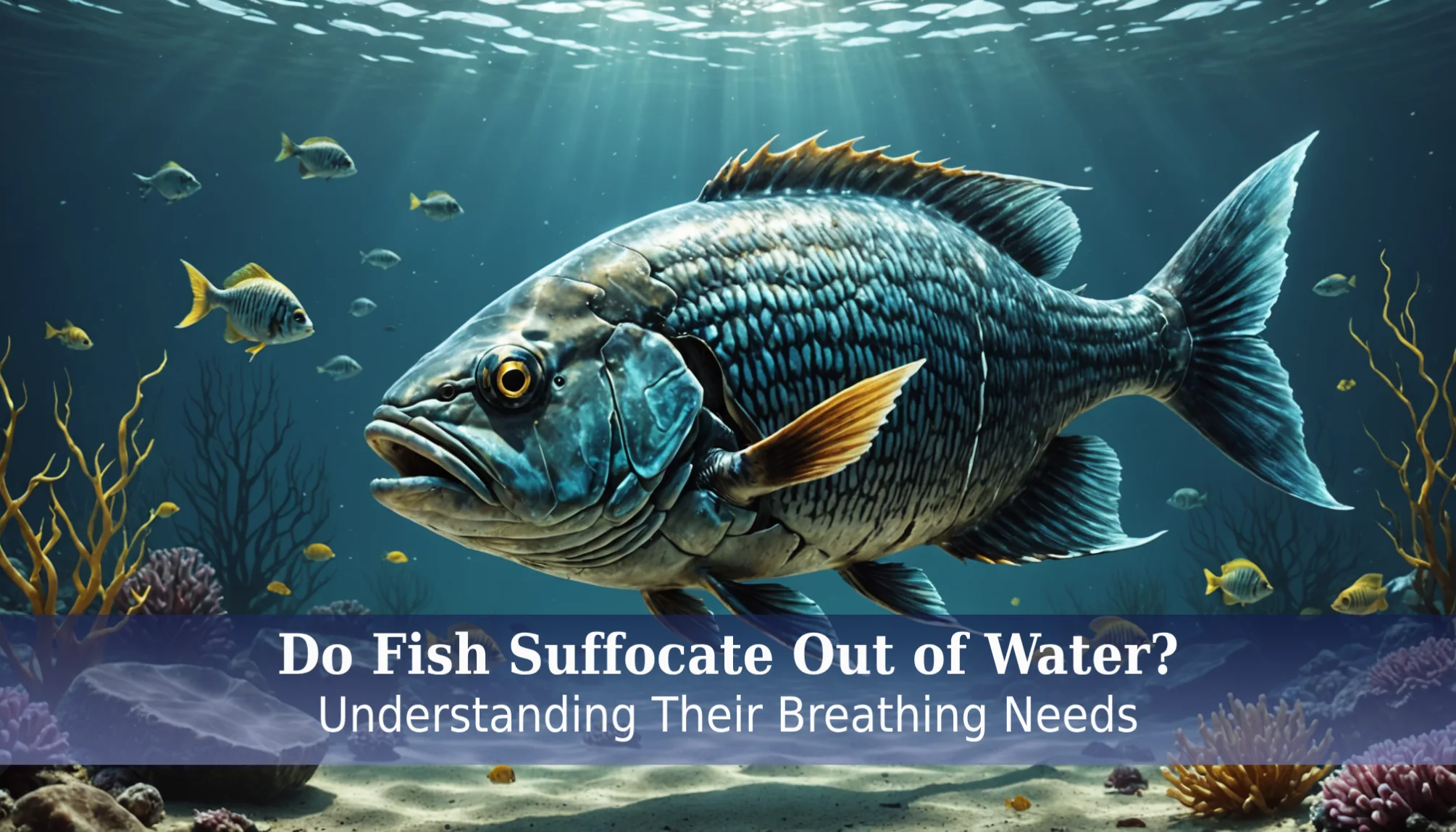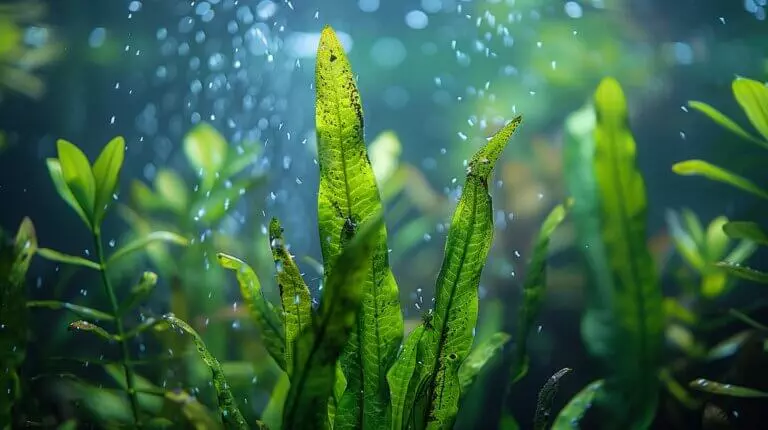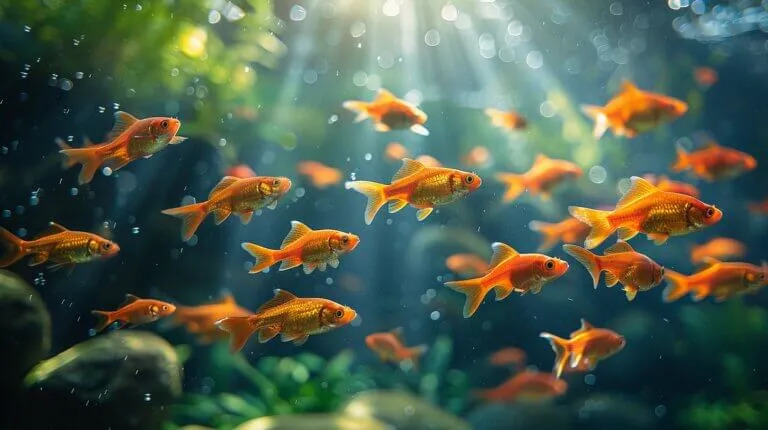Have you ever wondered what happens to fish when they leave the water? It’s a shocking truth that do fish suffocate out of water, and understanding this is crucial for any aquarium enthusiast! Whether you’re a newbie or a seasoned hobbyist, knowing how fish breathe and what they need to survive can help keep your aquatic friends healthy and happy.
Without proper care, your fish could face serious dangers, such as stress or even death. In this article, we’ll dive into the basics of fish respiration, explore the signs of suffocation, and uncover essential tips for maintaining a safe environment in your aquarium. Get ready to learn about the fascinating world of fish breathing and the steps you can take to ensure your underwater buddies thrive!
Do Fish Suffocate Out of Water? Understanding the Basics

How Fish Breathe: The Role of Gills
Fish breathe through gills, special organs that extract oxygen from water. Water enters through the fish’s mouth, flows over the gills, and exits. This process allows oxygen to enter the fish’s bloodstream while carbon dioxide is released. The gills have many tiny filaments that increase the surface area for gas exchange, making it efficient. Without water, fish cannot use their gills properly, which can lead to suffocation (Wikipedia).
What Happens When Fish Are Out of Water?
When fish are taken out of water, their gills can dry out. This drying causes the gill filaments to stick together, making it difficult for fish to absorb oxygen. Fish need water to breathe effectively; without it, they cannot obtain the oxygen they require. Some types of fish can survive short periods without water, but prolonged exposure results in severe oxygen deprivation, leading to suffocation. (Vaia)
Signs of Suffocation in Fish
Fish that are suffocating may show specific signs. They might gasp at the water’s surface, swim erratically, or appear lethargic. In severe cases, fish can lose consciousness or die if they cannot return to water or find enough dissolved oxygen to breathe. Observing these behaviors is crucial for fish owners, as immediate action may be necessary to prevent suffocation. (Petsbynumbers)
The Breathing Mechanism of Fish

How Fish Extract Oxygen from Water
Fish breathe through special organs called gills. These gills are on each side of a fish’s head and are designed to take oxygen from water. As a fish swims, it pulls water in through its mouth. The water then flows over the gills, which contain tiny structures known as filaments. These filaments have a large surface area, allowing fish to absorb oxygen efficiently. While oxygen enters the fish’s bloodstream, carbon dioxide is released back into the water. This process is crucial for fish survival, as they need sufficient oxygen to live.
In a well-maintained aquarium, fish can thrive and exhibit healthy behaviors. Proper water movement ensures that oxygen-rich water continuously flows over the gills, allowing fish to breathe easily.
The Importance of Water Quality for Fish Survival
Water quality is vital for the health of fish. Clean, oxygen-rich water is essential for effective breathing. Pollutants can lower dissolved oxygen levels, leading to suffocation. Additionally, high temperatures can also decrease oxygen availability, putting fish at risk.
Fish are sensitive to environmental changes. Water contaminated with waste or chemicals can quickly become harmful. For example, if an aquarium owner fails to perform regular water changes, harmful substances can build up, resulting in poor water quality. This situation can stress fish, impair their oxygen uptake, and elevate the risk of suffocation.
Common Misconceptions About Fish Breathing
Many people mistakenly believe that all fish can survive for long periods out of water. This is not true. While some fish species, like the mudskipper, can breathe air and tolerate short periods outside of water, most fish rely solely on water for breathing.
Another misconception is that fish do not need clean water to breathe. In reality, pollution can significantly impact a fish’s ability to extract oxygen. Some fish may appear to swim normally, but if the water quality is poor, they may struggle to breathe and could eventually suffocate.
Factors Influencing Fish Suffocation Risk

Understanding the factors that influence fish suffocation risk is essential for recognizing harmful conditions for fish. Fish rely on water to breathe, and various situations can impact their survival.
Contexts Under Which Fish May Suffocate
Fish suffocate when they are out of water for too long. Most species need water to breathe efficiently. Gills, the respiratory organs of fish, extract oxygen from water. When fish are removed from water, their gills can dry out quickly, making it hard for them to breathe. Some fish, like lungfish, can survive longer out of water because they can breathe air. However, most fish cannot last long outside their aquatic environments.
For example, if a fish is caught and placed in a bucket without water, it can start suffocating within minutes. Fish must remain in water to access the oxygen they need. Proper handling during fishing or transferring fish to new tanks is crucial to avoid suffocation.
The Impact of High Temperatures on Oxygen Levels
High temperatures in water can lead to lower oxygen levels. Warm water holds less oxygen than cold water. As the temperature rises, fish may struggle to get enough dissolved oxygen. This situation can lead to suffocation, especially in crowded or poorly maintained tanks.
For instance, if an aquarium’s water temperature exceeds 80°F (27°C), fish may show signs of distress, such as gasping for air. This behavior indicates they are struggling to breathe. Fish owners should monitor water temperatures closely and ensure they remain within appropriate ranges for the specific species they keep.
How Pollution Affects Fish Breathing
Pollution significantly affects fish breathing. Contaminants in the water, such as chemicals and waste, can reduce the amount of dissolved oxygen available. Pollution can also trigger algal blooms, which consume large amounts of oxygen during decay. These blooms create “dead zones” where oxygen is nearly absent, making it impossible for fish to survive.
For example, rivers and lakes with heavy runoff from fertilizers often experience algal blooms. The depletion of oxygen in these areas can lead to fish kills, where entire populations die due to suffocation. Maintaining clean water and reducing pollution are vital for ensuring the health of aquatic environments and the survival of fish.
What Fish Owners Should Do to Prevent Suffocation

Fish are sensitive creatures that need a clean and stable environment to thrive. Owners can follow specific steps to prevent suffocation and keep their fish healthy. This section covers how to create a suitable habitat, maintain aquatic environments, and recognize when to seek professional help.
Creating a Safe and Suitable Habitat for Your Fish
Creating a suitable habitat is essential for fish survival. The environment should resemble the fish’s natural habitat as closely as possible. Here are some important factors to consider:
- Water Quality: Regularly test the water for pH, ammonia, nitrites, and nitrates. Clean water with low toxin levels helps fish breathe easily and reduces stress.
- Temperature Control: Fish need specific temperature ranges. Warmer water holds less oxygen, increasing the risk of suffocation. Use a heater or a cooler to maintain an optimal temperature for the fish species.
- Adequate Space: Each fish requires enough space to swim freely. Overcrowding can lead to stress and low oxygen levels. As a general rule, provide at least one gallon of water for each inch of fish.
- Proper Filtration: A good filtration system removes waste and provides oxygenation. Ensure that the filter is suitable for the tank size and clean it regularly.
By focusing on these key areas, fish owners can create a safe environment to prevent suffocation.
Regular Maintenance of Aquatic Environments
Routine maintenance is crucial for a healthy fish habitat. Here are some steps fish owners can take:
- Perform Regular Water Changes: Change 10-15% of the water weekly to reduce harmful substances. This practice maintains water quality and supports fish health.
- Monitor Oxygen Levels: Use a dissolved oxygen test kit to regularly check oxygen levels. If levels are low, consider adding an air pump or increasing water movement.
- Clean the Tank: Regularly remove uneaten food and debris. This prevents waste build-up, which can harm water quality and oxygen levels.
- Check Equipment: Regularly inspect heaters, filters, and aerators to ensure they function correctly. Replace or repair any faulty equipment immediately.
These maintenance steps help ensure optimal living conditions for fish, significantly reducing the risk of suffocation.
When to Seek Professional Help for Fish Care
Sometimes, despite best efforts, fish may show signs of stress or poor health. In these cases, seeking professional help is vital. Here are circumstances when fish owners should consult a veterinarian or aquatic specialist:
- Persistent Signs of Stress: If fish display unusual behaviors, such as gasping at the surface, rapid gill movement, or lethargy, it may indicate poor water quality or health issues.
- Water Quality Issues: If water tests reveal high levels of ammonia, nitrites, or nitrates, immediate professional advice is necessary to avoid potential fish death.
- Unexplained Illnesses: If fish exhibit signs of illness, such as unusual swimming patterns or discoloration, a professional can diagnose the problem and recommend treatment.
Conclusion
In conclusion, understanding how fish breathe is essential for their survival. Fish use their gills to extract oxygen from water, and they can suffer if they find themselves out of that crucial environment. It’s important for fish owners to create a safe habitat, maintain clean water, and be aware of conditions that might lead to suffocation, such as high temperatures and pollution.
By giving your fish the right care and attention, you can help them thrive! So, whether you’re a new fish owner or just curious about these amazing creatures, remember that fish need water to survive. Keep exploring and learning about the wonderful world of fish, and you’ll be amazed at what you discover!
FAQs
1. Can Fish Survive Out of Water for a Short Time?
Yes, some fish can survive short periods out of water. For instance, certain species like the mudskipper can live on land by breathing through their skin. However, most fish rely solely on water to extract oxygen using their gills. If removed from water, many fish will suffocate within minutes. The survival time out of water varies greatly among species. The African lungfish can breathe air and must do so periodically to survive, while most others cannot tolerate being out of water for long.
2. What Are the Best Practices for Maintaining Oxygen Levels?
Maintaining adequate oxygen levels in an aquarium is crucial for fish health. Here are some best practices:
- Regular Water Changes: Change about 10-20% of the water weekly to keep it clean and oxygen-rich.
- Use Aeration Systems: Install air pumps or air stones to boost oxygen levels in the water.
- Avoid Overcrowding: Keep the number of fish within the recommended limits to prevent oxygen depletion.
- Monitor Water Quality: Regularly check parameters such as dissolved oxygen, pH, and ammonia levels to ensure a healthy environment for fish.
3. How Do Different Fish Species Handle Oxygen Levels?
Fish species have unique adaptations to manage oxygen levels in their environments:
- Lungfish: This species can breathe air and must surface periodically when oxygen levels in the water drop.
- Catfish: Some catfish can gulp air directly from the surface, allowing them to survive in oxygen-poor waters.
- Marine Species: Most saltwater fish extract oxygen from the water using gills and are less capable of surviving without water compared to some freshwater species.






